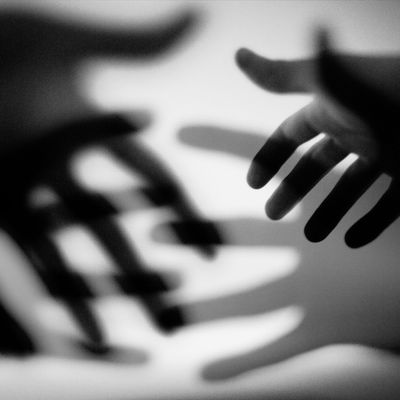
Dreams are strange, misunderstood things. This week, Science of Us will be exploring the latest research that helps explain what they are, what they might mean, and how they affect our waking lives.
Here’s a challenge: Reach back in your brain to the last dream you had, or at least the last one you can remember reasonably clearly. Think through how you’d describe it to someone else — where you were, who you encountered, what happened.
And now take a minute to think about how you know those things. If you’re like most people, the answer is pretty straightforward: You know because you saw them. Dreams are primarily visual, heavily influenced by the things we see while we’re awake (so much so, in fact, that people who grew up watching black-and-white television also tend to dream in grayscale).
But when you don’t have any images to draw from, the brain is forced to use other materials to construct its dream world, creating sleeping scenarios rich in sensory information that would otherwise be confined to waking life. On a science website hosted by the University of Illinois, one user summed it up this way: “Our dreams are based on our memories. So a person who has never experienced ‘seeing’ will not dream using sight,” they wrote. “This is just like how you do not dream with sonar images, as humans can not use sonar.”
In dreams, “people occur to me the way that I know them,” says Tommy Edison, who hosts a YouTube channel as the Blind Film Critic. Edison, who’s been blind since birth, interacts with others in his dreams through sound, smell, and sometimes touch: “If I were to meet you in a dream, what I would know is your voice, maybe what perfume you’re wearing.” If it’s someone who’s helped guide him in the past, he might know them in a dream by the feel of their arm. He describes his dreams in more detail in a video here:
For people who aren’t blind, though, research has shown that that type of sensory diversity is something of a rare occurrence. In a 2014 study in the journal Sleep Medicine, researchers asked 50 volunteers to track their dreams over the course of four weeks: 11 people who had been born blind, 14 who lost their sight sometime after birth, and 25 sighted people as a control group. The study authors didn’t find any significant differences between the three groups in the content or emotional tone of the dreams, but they did discover a handful of major differences in how they experienced their dream worlds.
In dreams, as in waking life, the blind subjects of both types relied more heavily on their other four senses: 86 percent of blind people reported at least one instance of hearing while dreaming, compared to 64 percent in the control group; 70 percent of blind volunteers experienced touch, versus 45 percent; the blind smelled at double the rate of their sighted peers, 30 percent to 15 percent; and tasting was 18 percent to 7 percent.
When the researchers focused on the blind people who had once been able to see, the gap was smaller — people who have some visual memories can build them into their dreams, filling in the image gaps with their own imagination. “For people I’ve met since [I went blind], their faces are just blurs or how I imagine they look,” one user wrote on the Illinois forum, but “someone like my mother looks forever 30.” Typically, though, those visual memories fade over time — the images become increasingly rarer and blurrier, and the dreamers eventually begin to dream more like their congenitally blind peers.
The congenitally blind people in the Sleep Medicine study also tended to have more nightmares, a finding that supports the idea that bad dreams are a sort of rehearsal for real-life threats. Children, who are generally more vulnerable than adults, also tend to have more frightening dreams. Similarly, it’s possible that the disadvantage posed by a lack of sight spurs the brain to prepare for disaster scenarios more than it otherwise would.
And for Edison, the most vivid nightmares, like his happier dreams, are primarily auditory. “I worked in radio for a long time, so I have the typical radio dream,” he says: “The record is ending, and I can’t get to it, and there’s dead air.”




